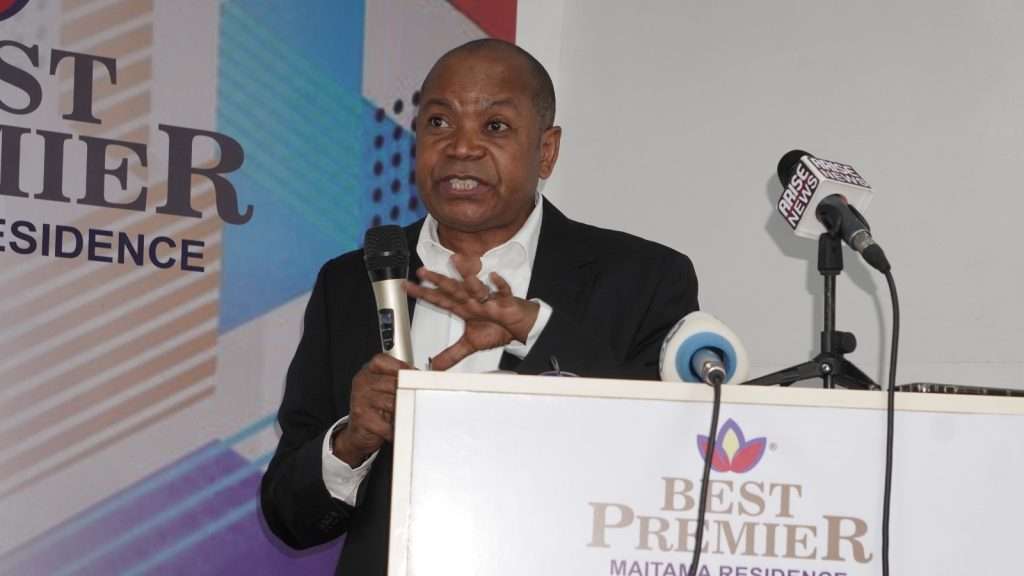
Abuja, Nigeria – December 23, 2024
Global Gas and Refining Limited has expressed strong disapproval and disappointment over the recent ministerial approval of Shell Petroleum Development Company’s (SPDC) divestment of its onshore assets to Renaissance Africa Energy Company Limited. The company accuses Shell of disregarding a court injunction and undermining legal processes, which it describes as a direct affront to Nigeria’s rule of law and sovereignty.

Kenneth Yellowe, Chairman of Global Gas, described the approval as “extremely unwelcome” and condemned Shell’s actions, stating they blatantly defy an existing court order restraining the Nigerian Upstream Petroleum Regulatory Commission (NUPRC) from granting consent to the divestment. Global Gas highlighted its ongoing negotiations with Shell over unresolved disputes, including significant financial losses that have plagued the company and its foreign investment partners.
Shell’s Pattern of Judicial Impunity
Yellowe noted that while the acquisition of assets by an indigenous company would ordinarily be a cause for celebration, it cannot come at the expense of unresolved issues with SPDC. He accused Shell of employing a “Stalingrad strategy,” a legal tactic designed to delay proceedings and exhaust smaller litigants. He also criticized the multinational for its habitual disobedience of Nigerian court orders—a behavior he claims Shell would never dare exhibit in its home country or other developed nations.
“This is a clear demonstration of Shell’s contempt for legal processes, good governance, and the rights of Nigerian businesses and communities, particularly in the Niger Delta,” Yellowe asserted.
A History of Broken Agreements
Global Gas detailed its longstanding contractual relationship with Shell, beginning in 1998. The company invested over $500 million in a natural gas processing facility, built to process supplies from Shell’s Cawthorne Channel Oil and Gas fields (OML 18). While operations commenced in 2005, Shell allegedly failed to meet its contractual obligations, prioritizing international markets over domestic gas supply. The dwindling and sporadic gas supply forced Global Gas to shut down operations, resulting in massive financial losses.
Shell’s refusal to declare the “Main Gas Start Date,” which would have triggered its contractual responsibilities, was described as a deliberate act of bad faith. Internal Shell documents, Global Gas claims, reveal an intentional strategy to undermine the agreement and frustrate its operations.
Violation of Court Orders
Global Gas also accused NUPRC of violating a court order by granting ministerial consent for the divestment despite an ongoing legal dispute. According to Yellowe, the court had directed the parties to explore amicable settlement options, and Global Gas has been compliant. However, NUPRC’s abrupt approval of the divestment disregarded the court’s injunction and undermined the ongoing negotiations.
“This defiance of court orders sets a dangerous precedent for corporate governance in Nigeria and erodes trust in the legal system,” Yellowe warned.
Call for Accountability and Justice
Global Gas is urging the Nigerian government, regulatory bodies, and international stakeholders to hold Shell accountable for its actions. Yellowe emphasized the need for stricter enforcement of court rulings and greater oversight of multinational corporations operating in the country.
“This fight is not just about Global Gas; it is about justice, fairness, and the rule of law for all Nigerian businesses and communities, especially those in the Niger Delta,” he said.
Global Gas affirmed its commitment to pursuing all legal avenues to protect its rights and investments, calling on all stakeholders to join the demand for accountability.
“Shell’s impunity must not be allowed to stand. This is a plea for justice for the Nigerian people,” Yellowe concluded.
A Growing Concern for the Niger Delta
The Niger Delta, where SPDC has operated extensively, has long borne the brunt of environmental degradation and economic marginalization. Global Gas insists that Shell’s disregard for the region and its people further perpetuates these injustices, eroding trust and leaving communities vulnerable.
As the case continues to unfold, stakeholders across Nigeria and beyond are watching closely, with many calling for systemic reforms to ensure multinational corporations respect the rule of law in their host countries.
